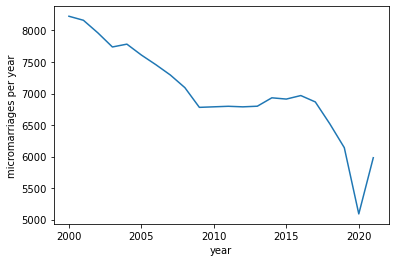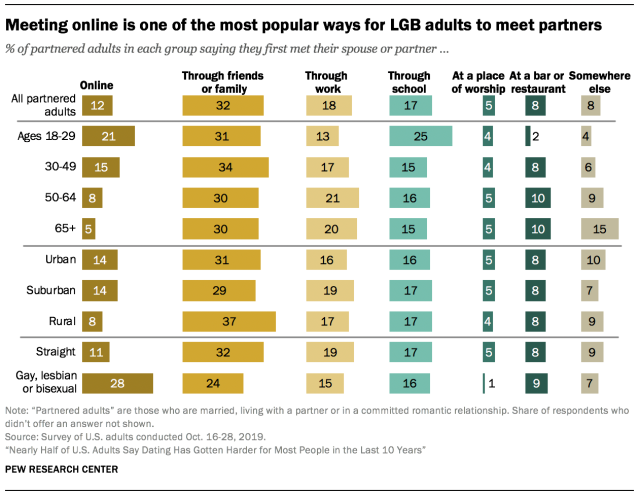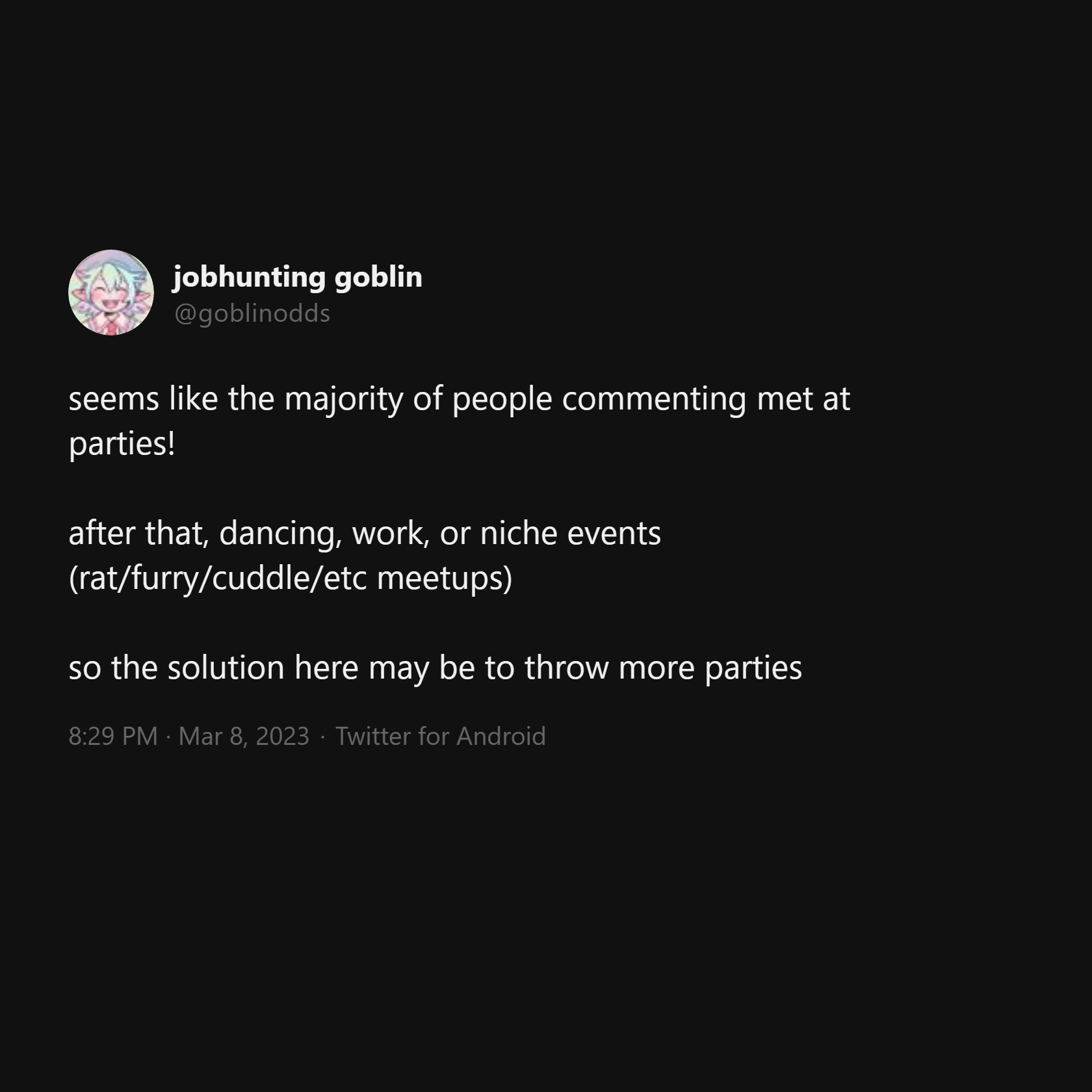Odds and Ends on Dating
[DISCLAIMER: I appreciate and love all my friends who are currently in relationships (some of you read these posts). I’m not upset about you being in a relationship, I’m just upset about the “unfairness” of the dating market in general. I hope you can take the post in good humor.]
I.
There’s a unit of risk called a micromort which is a one-in-a-million chance of dying after doing an activity. micromorts.rip has crunched the numbers for how many micromorts various activities are. For example, skydiving is 8 micromorts, climbing Mt. Everest is 37,000 micromorts, and being alive for a day after the age 20 is one micromort. It’s a bit sobering to think I have a one-in-a-million chance of dying on any given day just by existing.
What I like to do is look at the relative odds of dying for particular activities. For example, running a marathon is apparently 7 micromorts (wow), which isn’t too far behind skydiving. If I wanted to get a rush of adrenaline, it’s marginally safer to run 26 miles than it is to jump out of a plane 10,000 feet in the air. Maybe I’ll go with the skydiving next time I want to do something insane.
There are limitations to using aggregate statistics to try and predict the future. Become friends with an actuarial scientist and they’ll let you know how useful (and not useful) all this number crunching is. But it’s still fun to think about, right?
If we can figure out the one-in-a-million odds of dying for an activity, why don’t we do it for other things as well, like, for example, meeting your marriage partner?
Chris Olah has a blog talking about the idea of micromarriages. Micromarriages are similar to the micromort, but rather than measuring the chance you’ll die, micromarriages measure the chance you’ll meet a marriage partner by doing an activity. In his blog, Olah calculates the baseline micromarriage rate for people between the ages 18 and 35 as 50,000 micromarriages a year, which is about a 5% chance of finding a marriage partner in a given year.
5%!? Really!? I recognize that I’m extremely jaded from 5 years of having no success in the dating market, but isn’t 5% a bit high?
I imagine meeting the person I marry will feel like a one-in-a-million event. Or another way to phrase it is: one out of every million single adult women are probably compatible enough with me to form a happy marriage.
If there are about 33 million women in the U.S between the ages of 18-35 and only 15% of them are single and looking for a partner, then that means there is something like 5 people in the U.S. that I might form a really, really happy marriage with! Yet 5%!
Perhaps my standards are too high…
II.
If you look at the Wikipedia page for micromorts they calculate the baseline rate of micromorts like this: N deaths / N population * 1,000,000 = Micromorts per units of exposure per year. Now, it doesn’t quite make sense to do the same baseline calculation with micromarriages because while everyone and anyone is at risk of death anytime, (hopefully) everyone is not getting married until they’re sensible adults. I did the same baseline calculation anyway:

Micromarriage exposure per year over time. According to data from the CDC
Seeing the declining rate of micromarriages in the U.S. over the past two decades didn’t surprise me. I’ve seen various headlines noting this trend. And, of course, these numbers confirm my bias. A baseline rate of ~5,000-7,000 micromarriages per year (14-22 micromarriages per day) lines up more with my experiences than Olah’s baseline rate of 50,000 micromarriages per year (137 micromarriages per day).
I’m envious of the people in my life who have found relationships because they’re in the minority. I suspect that if the baseline rate was actually closer to 50,000 micromarriages a year, more of my friends would be in relationships (they would all make great partners). Yet, I think something like 70% of my friends who I keep in touch with are still single. What’s up with that?
III.
Although I’m introverted, I’m not antisocial. I consider myself high in openness and have usually gone out of my way to try new things and meet new people. These two things combined give me the impression that I’m probably exposed to more micromarriages than the typical software engineer/nerdy STEM major.
My “dating resume” is also somewhat stacked. I have a stable income, my friends (and strangers) have commented on my improved fashion sense (it helps working on product recommendations at a fashion retailer), I take care of my health and consider myself physically fit, I have a sense of humor, and I’m happy to cook and clean and take care of all the home chores.
So, how am I still single!? Is it because I’m 5’5!? (I’m joking, sort of)
I’ll quote Scott Alexander here (I know…) in an old post he wrote about being a “nice guy”:
When I was younger – and I mean from teenager hood all the way until about three years ago – I was a ‘nice guy’. And I said the same thing as every other nice guy, which is “I am a nice guy, how come girls don’t like me?”
There seems to be some confusion about this, so let me explain what it means, to everyone, for all time.
It does not mean “I am nice in some important cosmic sense, therefore I am entitled to sex with whomever I want.”
It means: “I am a nicer guy than Henry.”
Or to spell it out very carefully, Henry clearly has no trouble attracting partners. He’s been married five times and had multiple extra-marital affairs and pre-marital partners, many of whom were well aware of his past domestic violence convictions and knew exactly what they were getting into. Meanwhile, here I was, twenty-five years old, never been on a date in my life, every time I ask someone out I get laughed at, I’m constantly teased and mocked for being a virgin and a nerd whom no one could ever love, starting to develop a serious neurosis about it.
I feel the same. I know I’m not entitled to a relationship just because I’m a “nice guy” or because I put myself out there, but it feels frustrating to wallow in single-ness when it seems like people who are worse partners than me are in relationships. And while I’m looking for something else — i.e. a good relationship not any relationship — it feels like I should be seeing some success in the dating market.
At least I’m not alone. According to Pew Research something like 2/3rds of singles also feel miserable about their dating lives.
IV.
I’ve been trying to put micromarriages on the various dating/social related activities I participate in. It’s hard to find data on how people met their marriage partners. The closest thing I’ve come to is a the survey done by Pew Research Center which has some interesting percentages of how people met their partners, but no population numbers.

While this is helpful for deducing that going to a party hosted by your friend or family will expose you to more micromarriages than a bar, I can’t figure out by how much more. Based on this thread on Twitter, a lot of people meet their partners through parties anyway. If I want to maximize my exposure to micromarriages I guess I should be going to/hosting more parties.

It’s also a bit despairing for me to see that 25% of partnered adults met through school. I’m graduated and don’t plan on going to grad school, and I don’t anticipate marrying anyone I know from university or high school. Tough luck, I guess.
V.
I’ll end this post with saying that I’m actually quite okay with being single. In statistics, there’s a lot of study in a class of problems related to optimal stopping, or deciding when to take a particular action to maximize expected reward. In the context of marriage, this is deciding when to stop “dating” and instead commit to marrying your current (or next) partner.
The math says that you should spend about 37% of your total time looking for partners, and then the next best partner after that 37% is the one you should marry. To make it concrete, average male life expectancy in the U.S. is 77 years old. A person should date until they’re 28. After 28, the next best partner they date should be the partner they commit to marrying. Again, this is to maximize the expected reward (e.g. satisfaction? happiness?) from the marriage.
If being a CS major already didn’t clue you in, I’m a big stats and numbers nerd. So this kind of result is not only amusing to me, but a result I’ll take to heart. (I won’t literally wait until 28 to get married and dump any girls I date prior to 28).
Learning about this has made me a lot less frustrated about being single at 22 (soon to be 23). I’ve seen more than my fair share of toxic and abusive relationships, and I’m not eager to walk into one myself. Knowing that it’s not quite “optimal” for me commit to marrying a partner right now anyway is another way to find solace.
That being said, all this thinking about micromarriages and finding my partner is still pretty amusing. As Scott Alexander said, “There’s A Time For Everyone”:
Chris thinks of micromarriages as a motivational tool. If you go to a party, and you don’t meet anyone interesting there, it’s tempting to get discouraged. If you try again and again, with identical results, it’s tempting to give up. Chris says: instead, think of yourself as getting 500 micromarriages each time (or whatever you decide the real number is, with the understanding that you should update your estimate at some rate conditional on success or failure). All you need to do is go to a thousand parties and you have a 50-50 chance of meeting the right person! Maybe that number would sound more encouraging if it was lower - but it took me twenty years of trying, so I couldn’t have been getting more than a few hundred micromarriages a day, and I wasn’t slacking off.
Well, I don’t think I’m slacking off either. So maybe it’ll take me 20 years and thousands of parties too. If it doesn’t and I meet her sooner, I’ll let you know.